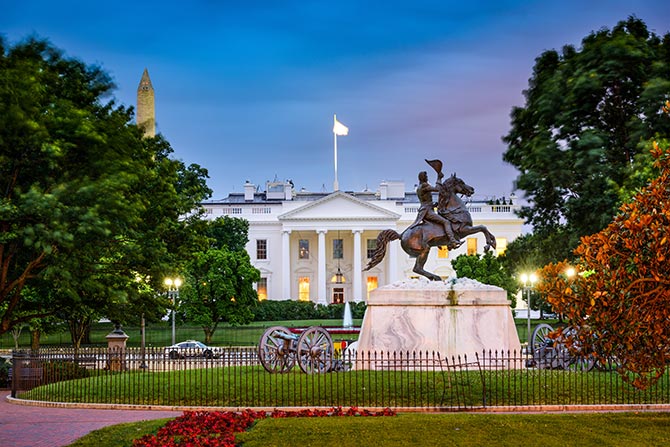In 2020, on behalf of the NMBA, we asked former Representative Daymon Ely to introduce legislation to exempt federally taxable social security retirement income from state personal income tax. Although the bill did not pass, it sparked much discussion in and out of the state capital concerning the fairness of imposing the tax on senior citizens. New Mexico began taxing Social Security benefits in 1990. Frankly, many suggested that you do not realize that both the feds and the state tax Social Security until you are eligible for benefits.
After 2020, there were several attempts by legislators to repeal the tax. In 2022, the Legislature did revise the tax, so currently, Social Security income is exempt from state income tax for individuals with income of less than $75,000 for married filers filing separately, $150,000 for heads of household, surviving spouses, and married filers filing jointly, and $100,000 for single filers. We are proud that the NMBA got the debate started on this issue to protect our state’s senior citizens.
This year, Congress and the executive branch have raised a number of issues impacting seniors. In July, President Donald Trump signed the sprawling One Big Beautiful Bill (OBBB), a 900-page piece of legislation that will impact Americans in a variety of ways. Seniors, in particular, will be acutely affected, both positively and negatively. It’s difficult to get the whole picture of any piece of legislation until it’s fully implemented, but we will attempt to paint as clear a picture as possible at this early stage regarding its implications for seniors.
On the positive side of the ledger, under the OBBB, millions of taxpayers aged 65 and older receive a break for tax years 2025 through 2028. According to AARP, “You must be at least 65 years old by the end of the tax year and have a modified adjusted gross income (MAGI) of less than $175,000. If you’re married and filing a joint return, your spouse can also claim the deduction if they’re 65 or older and your combined MAGI is less than $250,000.” The deduction is for $6,000 per eligible taxpayer and $12,000 for married couples filing jointly if both spouses are 65 or older. The deduction is reduced by 6% for MAGI exceeding $75,000 ($150,000 for a couple) and can’t be claimed if it exceeds $175,000 ($250,000 for a couple).
As for the much-ballyhooed possible end to the taxation of Social Security, the new law contains no provision ending that tax or changing how those taxes are calculated. That’s not the only bit of bad news contained in OBBB for seniors; there are multitudes of changes to Medicare, Medicaid, SNAP benefits and other programs that will be hugely detrimental. As AARP details, “The legislation imposes new documentation requirements on the roughly 5.5 million adults ages 55 to 64 who have an ACA plan. “Those changes will add more red tape for enrollees and further drive down coverage,” according to AARP Chief Advocacy and Engagement Officer Nancy Leamond in a letter to Senate leaders.
OBBB also creates work requirements designed to disqualify people from enrolling in Medicaid and creates a massive amount of red tape to prove compliance. Obviously, this affects the millions of Medicaid recipients under 50 years old, but also affects the 9.2 million Medicaid recipients aged 50-64 who are not yet eligible for Medicare. The bill stipulates that Medicaid-eligible recipients who apply for coverage or receive coverage through the ACA would have to work at least 80 hours per month or fulfill similar criteria.
OBBB doesn’t just affect Medicaid, but also increases health care costs for more than a million Medicare enrollees. The legislation blocks implementation of an existing regulation that makes it easier for eligible low-income Medicare beneficiaries to enroll in Medicare Savings Programs (MSPs) that lower Medicare premiums and out-of-pocket costs. MSPs exist to make healthcare more affordable for Medicare enrollees with limited assets and income and, without programs like this, even low-cost medical bills become unaffordable and basic care becomes a pipe dream. Blocking the regulation would make streamlining and automating enrollment into MSPs practically impossible. The nonpartisan Congressional Budget Office (CBO) estimated that the legislation would cause up to 1.3 million Medicare enrollees eligible for these programs to lose or forgo their Medicaid coverage. The CBO estimates that some of the hardest-hit Americans under the OBBB would be Medicare enrollees living at or just above the federal poverty level. For example, a couple on Medicare who are eligible but no longer able to enroll in the Qualified Medicare Beneficiary Program, making a combined $21,000 per year, could see their out-of-pocket costs skyrocket by $8,340 per year. A single Medicare enrollee making $19,000 per year could see their out-of-pocket costs go up by $3,300 per year if they are unable to enroll in Medicare Savings Programs.
Another crucial government program for seniors is the Supplemental Nutrition Assistance Program (SNAP), previously known as food stamps. In 2023, more than 11 million people age 50 and older received food aid through SNAP. However, beginning in October 2027, most states will have to pay 5-15% of the cost of the SNAP benefits their residents receive. OBBB also raises the age limit for work requirements to be eligible for SNAP benefits from 55-64, meaning many people up to 64 will be required to work at least 20 hours of per week to receive benefits for more than three months in three years.
One of the overriding themes of OBBB is making life more difficult for vulnerable groups, including seniors. The original purpose of programs such as Medicaid, Medicare, Social Security and SNAP was to keep vulnerable groups out of poverty. These programs provide economic lifelines to single mothers, veterans, children in foster care and senior citizens. Removing these lifelines will not improve anything but instead cause a more desperate and precarious society.








